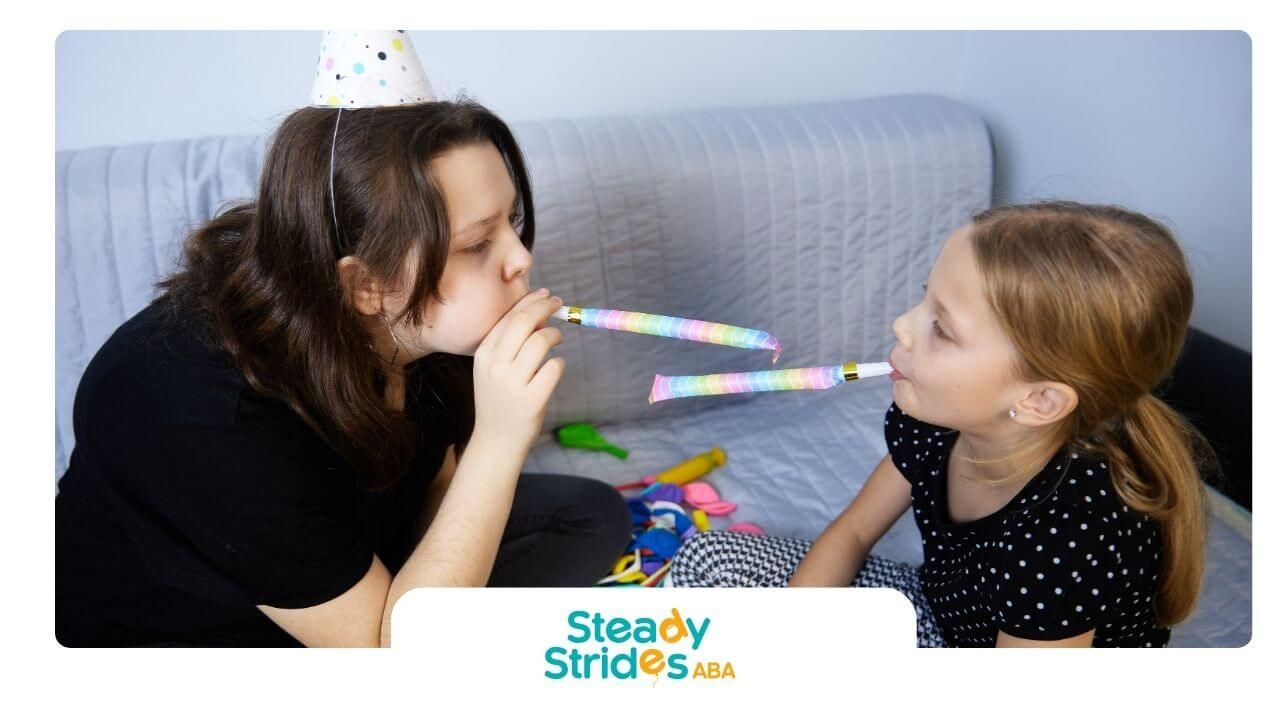Dating can be a whirlwind of emotions and experiences for anyone, but when you add the element of an autism spectrum disorder into the mix, it’s a whole new journey. Navigating the world of dating when an autistic child is involved requires understanding, patience, and a genuine desire to create a supportive environment for everyone involved. This blog post explores the dos and don’ts of dating someone with an autistic child, offering insights and guidance for a fulfilling and respectful experience.
Understanding Autism and Its Impact on Families
Autism spectrum disorder (ASD) is a complex neurodevelopmental condition that affects communication, social interaction, and behavior patterns. Because it’s a spectrum, autism manifests differently in every individual, influencing their strengths, challenges, and how they interact with the world.
Families with autistic children often navigate life a little differently. They embrace routines, celebrate little victories, and prioritize their child's needs with an unwavering commitment. Understanding these dynamics is fundamental for anyone considering dating someone with an autistic child.
The Basics of Autism Spectrum Disorder (ASD)
Autism spectrum disorder (ASD) encompasses a range of conditions characterized by challenges with social skills, repetitive behaviors, and communication. Individuals with ASD may have unique sensory sensitivities and varying levels of support needs.
Understanding the nuances of the spectrum is crucial when dating someone with an autistic child. Each child's needs differ, and flexibility is key in providing a supportive environment. Effective communication, patience, and creating a structured and predictable routine can aid in fostering a strong bond with the child and their parent.
How ASD Affects Family Dynamics
An autistic child's needs often shape the rhythms and routines of family life. For instance, an autism parent might prioritize predictable schedules and environments to minimize their child's anxiety and sensory overload.
Family dynamics naturally revolve around the special needs child, ensuring they receive the support and accommodations necessary to thrive. This may involve attending therapy sessions, implementing specific communication strategies, or seeking guidance from medical professionals.
It's important to recognize that these families are not defined by their challenges, but by their resilience, love, and commitment to their child's well-being.
The Role of a Partner in a Family with an Autistic Child
Stepping into the life of a family with an autistic child means embracing a unique and rewarding experience. It’s about understanding that patience, empathy, and a willingness to learn are cornerstones of a successful relationship.
Supporting both your partner and their child creates a loving and harmonious environment for everyone. It means understanding that routines are important, flexibility is vital, and communication is the bridge to understanding.
Supporting Your Partner in Parenting
Creating a supportive environment begins with understanding your partner's perspective. Remember that parenting an autistic child can be both deeply rewarding and incredibly demanding. Effective communication is paramount.
Show genuine interest in learning about the child’s needs and how you can best support them. Ask questions, listen attentively, and be open to adjusting your expectations. Your willingness to educate yourself speaks volumes about your commitment to the relationship.
Celebrate their victories, offer comfort during challenging times, and be a pillar of strength as they navigate the complexities of parenting a child with different needs.
Building a Bond with an Autistic Child
Building a stronger bond with an autistic child takes time, patience, and genuine effort. Respect their boundaries, learn about their interests, and tailor your interactions to their unique communication style.
Engage in activities they enjoy, even if they fall outside your comfort zone. Social interaction might look different with an autistic child, but it can be equally as meaningful. A simple smile, a shared interest, or even just respecting their need for space can go a long way in fostering a loving relationship.
Remember, children on the spectrum experience and express emotions differently. Be observant, learn to recognize their cues, and adapt your approach accordingly.
Essential Dos for Dating Someone with an Autistic Child
Navigating the world of dating with an autistic child involved requires understanding and empathy. By embracing a few key principles, you can foster a fulfilling and respectful relationship.
It's about being prepared to adapt, communicate openly, and appreciate the unique dynamics of a neurodiverse family. These “dos” provide a roadmap for success.
Educate Yourself About Autism
One of the most important things you can do when dating someone with an autistic child is to educate yourself about autism spectrum disorder. Understanding the basics of ASD, how it manifests differently in individuals, and how it can impact family life, is crucial for cultivating a successful relationship.
However, remember that autistic people are just that: people. They are not their diagnosis, and they deserve to be treated with respect, understanding, and dignity.
Here are some ways to educate yourself:
- Read books and articles from reputable sources.
- Watch documentaries or videos featuring autistic individuals.
- Connect with autism advocacy groups or online communities.
Practice Patience and Flexibility
Patience and flexibility are essential qualities to have when dating someone with an autistic child. Understand that plans may change unexpectedly, meltdowns or tantrums might occur, and communication might require extra effort.
Be prepared to adjust your expectations and routines to accommodate the child's needs. Instead of viewing these situations as inconveniences, approach them as opportunities for growth and understanding.
Remember, flexibility isn't about sacrificing your own needs but finding a balance that honors the well-being of everyone involved.
Key Don'ts in Relationships Involving an Autistic Child
Just as important as knowing what to do is knowing what to avoid. Certain behaviors can create unnecessary stress, misunderstandings, and hurt feelings.
By being mindful of these “don'ts,” you create a more supportive and harmonious environment where your relationship can flourish.
Avoid Making Assumptions About Autism
It can be easy to make assumptions about autism spectrum disorder based on stereotypes or portrayals in the media. Remember, autism is a vast spectrum, and every individual is unique.
What might be challenging for one autistic person might be a strength for another. Avoid using language that perpetuates stereotypes or minimizes their experiences.
For example, using phrases like "high-functioning" or "low-functioning" can be hurtful and inaccurate. Similarly, be mindful of using sarcasm, which can often be misconstrued by individuals on the autism spectrum.
Steering Clear of Overstepping Boundaries
Boundaries are essential in any relationship, but they're particularly important when dating someone with an autistic child. Children on the spectrum might have different sensitivities around physical touch, personal space, and communication styles.
It's important to respect their need for routine and predictability, avoiding sudden changes or surprises that might trigger anxiety. Always defer to the parent's guidance on how to best interact with their child, respecting their expertise and experience.
Conclusion
Navigating a relationship with a partner who has an autistic child requires understanding, patience, and empathy. By educating yourself about autism and being flexible in your approach, you can create a supportive environment for both your partner and their child.
Avoid making assumptions and respect boundaries to foster healthy relationships. Routine is crucial for autistic children, so be open to embracing it. Remember, building connections takes time and effort, but with compassion and dedication, you can cultivate meaningful relationships with your partner's autistic child.
For more resources and guidance, explore further insights on understanding autism.
Frequently Asked Questions
How Can I Support My Partner Who Has an Autistic Child?
Supporting your partner means understanding their journey as a parent of a special needs child. Practice effective communication, be a good listener, and offer practical help whenever possible.
What Should I Not Say to My Partner's Autistic Child?
It's best to avoid making inappropriate comments about their autism spectrum disorder or comparing them to others. Communication should be respectful, sensitive, and tailored to their understanding.
How Important is Routine for an Autistic Child?
Routine is paramount for most autistic children, providing predictability, stability, and a sense of security. Maintaining daily structure helps manage anxiety and create a more harmonious environment.













